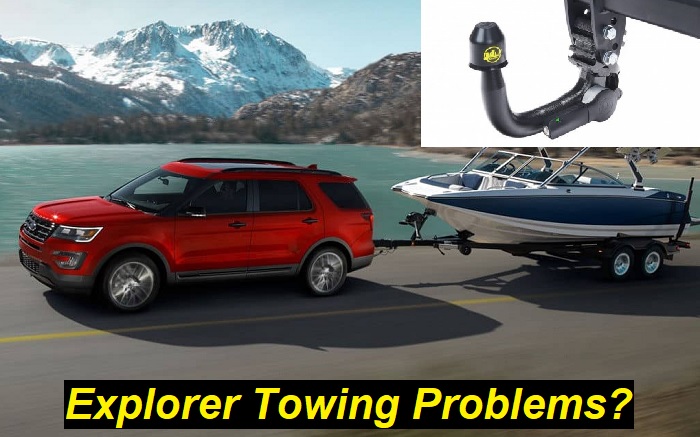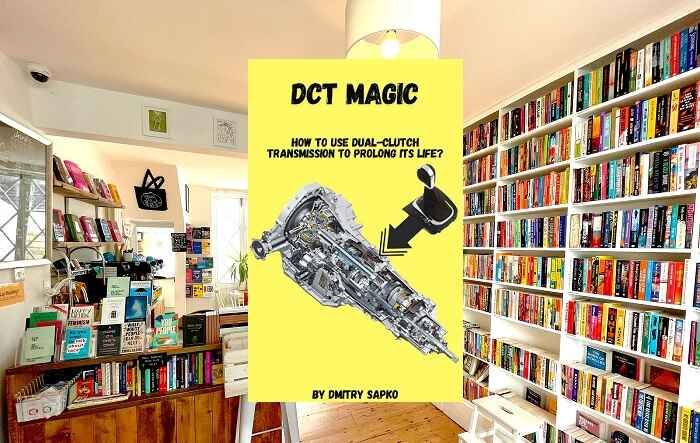Towing trailers is one of the important parts of using a vehicle in the USA. People love going to camping sites, river banks, and places with wonderful nature, and tow their trailers with them. Also, we often need to tow a trailer loaded with building materials or instruments. Or we just don't want to pay for delivery from local shops and want to put all our things in a trailer.
For this, many Americans buy big SUVs like the Ford Explorer hoping that they are ideal not only for driving comfort but also for towing big weights. And partially, they are right. These cars are pretty good for different tasks. But today, we'll be talking about the towing problems with the Ford Explorer. And you'll be surprised with how many issues we could find.

Here's what we'll be talking about:
- What's the allowed towing capacity in your Ford Explorer?
- What restrictions should you follow when towing with an Explorer?
- What towing problems are common among the Explorer owners?
- What can you do to tow more with your Ford Explorer?
- What can be broken in your Explorer if you tow too much weight?
Let's get started!
The towing capacity of the Ford Explorer - important to know
Before you put something on that towbar in your SUV, you need to know the exact towing capacity. Most Ford Explorer models offer a towing capacity of 5,300-5,600 pounds or up to 2.5 tons. It means, your trailer shouldn't weigh more than that. We recommend getting 10% lighter weight - this will make your driving safer.
Also, the towbar load is important. You shouldn't put more than 560 pounds on the towbar of the Ford Explorer. These are official figures for the latest generation of the SUV, but you should check it for your year and engine. The towing capacity will differ a little for various engines and transmissions.
So, keeping the weight of your trailer under the towing capacity limitations, you get the following:
- your vehicle is not in danger even if you need to tow this weight for a long time and on a harsh road;
- all important units and parts of your vehicle are safe from being broken or from getting too much load;
- you will not get into trouble when trying to go up the hill or trying to brake on the highway;
- the vehicle will have decent acceleration and braking, you won't need to get used to its new manner of driving;
- no need to care about fuel consumption - it will be a little higher, but not so bad as when you go over the towing capacity limitation;
- the vehicle will remain in an optimal position, but if you push over 560 pounds on the towbar, the rear part will get closer to the road.
So, it's important to obey the rules. You should never go over the limitation of the towing weight. Also, you should check whether your trailer has additional brakes and which type of brakes it has. If no brakes on the trailer, the towing capacity of the Ford Explorer drops to approximately 1 ton or about 2,000 pounds.
The size of the trailer doesn't matter much. But if it's too big, you may need to get a special license for moving on the roads from the police before you start your journey. Check the rules of your state so that you wouldn't get into trouble.
Some towing problems that are common for Explorer owners
We believe there are no big problems that Ford Explorer owners experience when towing trailers. But we've read in forums and private blogs some funny stories where people say about their mishaps on the road during towing something with their Explorers.
Among the problems, we may think of rear transmission breakdowns, transmission issues, engine overheating problems, and also many other issues that can be fatal if you don't notice them on time. Also, if you notice them in the middle of nowhere, there will be nothing much you'll be able to do. So, better know about that before you start towing.
learn more about the problem with the "Trailer Brake Module Fault" error message in our article.
Common problems caused by towing with your Ford Explorer
First of all, you should know that the Explorer isn't made for towing. It's an SUV that is considered to be a good choice for interstate driving. But towing is not its cup of tea, let's say. This vehicle has its suspension tuned for comfortable driving for all passengers. And this is what differentiates this vehicle from a pickup truck.
Also, engines and transmissions aren't tuned and prepared for towing. No, we don't want to say that the Explorer is helpless in towing. It can still tow some weights. But what we want to say is that towing over its capacity is really dangerous. It's not an F-150 or a Ranger, so you should be careful.
Here's what can go wrong:
- Transmissions failure. One of the worst things that can happen to you when you tow huge weight with your Explorer is transmission failure. The automatic transmission is very expensive to repair, and it can be broken badly when towing. This is the worst-case scenario for you.
- Engine overheating. If you tow big weight, the Explorer engine will be under load all the time. It means, it will overheat, especially when driving up the hills. If you see the temperature gauge moving over the normal position, just stop the vehicle and let the engine cool down.
- Rear suspension problems. Once the towbar is loaded, the rear suspension gets a much higher load. Also, towing influences the rear suspension more than any other part of your vehicle. You should be more careful on road pits to save the suspension and avoid problems.
- Body problems. Unfortunately, the metal in modern cars is not as thick and reliable as it was before. You can just tear away the towbar from your Explorer if you try to tow much more weight than allowed by the manufacturer.
- Steering problems. Once the rear part of the vehicle is pressed to the ground, steering becomes a problem. It will not break your car eventually, but you can get into accidents if you don't drive very carefully.
- ECU problems. If you tow more than allowed, the ECU can come up with the idea that something is wrong with the engine or transmission. And it will send them to limp mode. It will mean that towing will not be possible because of power and torque restrictions.
So, these are some common problems you can get when towing with a Ford Explorer. Some of them will only occur when you try to tow something incredibly heavy. And some of them will mean that your vehicle has already had some problems and towing just made them show up faster.
Of course, the problems will depend on the mileage. For example, if your Explorer has already made 200,000 miles, its transmission will be in a dying condition. Towing something extremely heavy with such a vehicle will mean the soon death of the transmission.
How to avoid problems when towing with a Ford Explorer?
It's not very hard to avoid problems. You just need to think twice before doing anything. Once you start towing, you should also obey some rules of driving a car with a trailer. If you have never driven an SUV with a trailer behind it, you should try with some light and small trailers before.
Here's what you can do to avoid problems:
- Get some skills of towing with your Explorer, don't start towing big camping trailers if you don't have experience.
- Drive carefully because your vehicle is in danger and is very vulnerable at this time. You should avoid high speed and avoid going over road pits.
- Learn how to brake without wearing your brakes too much. It's extremely important for towing in mountain areas.
- Carefully fix the trailer on the towbar and don't forget to plug in the electrical equipment of the trailer to have stoplights and turn lights on when needed.
- Keep driving under restricted speed limits to avoid problems with your vehicle.
- Understand the weight of your trailer. The bigger it is, the more carefully you need to drive.
- Forget about sharp acceleration and quick braking. You may easily get into accidents and destroy your SUV if you are doing so.
Final words
We don't recommend buying a Ford Explorer if you are going to tow a lot. A better look at some pickup trucks for this purpose. But an Explorer can easily tow some trailers if needed. All you need to do is to avoid towing any trailer that is heavier than the towing capacity of your SUV. And you will also need to get some experience in towing.
Also, your vehicle shouldn't be broken. Especially, the rear suspension and the transmission should be fine. Otherwise, all problems will be catalyzed and multiplied. When you are going to tow something, just check that everything is OK and never hurry up when you are towing a trailer with your SUV.
About the authors
The CarAraC research team is composed of seasoned auto mechanics and automotive industry professionals, including individuals with advanced degrees and certifications in their field. Our team members boast prestigious credentials, reflecting their extensive knowledge and skills. These qualifications include: IMI: Institute of the Motor Industry, ASE-Certified Master Automobile Technicians; Coventry University, Graduate of MA in Automotive Journalism; Politecnico di Torino, Italy, MS Automotive Engineering; Ss. Cyril and Methodius University in Skopje, Mechanical University in Skopje; TOC Automotive College; DHA Suffa University, Department of Mechanical Engineering






Add comment